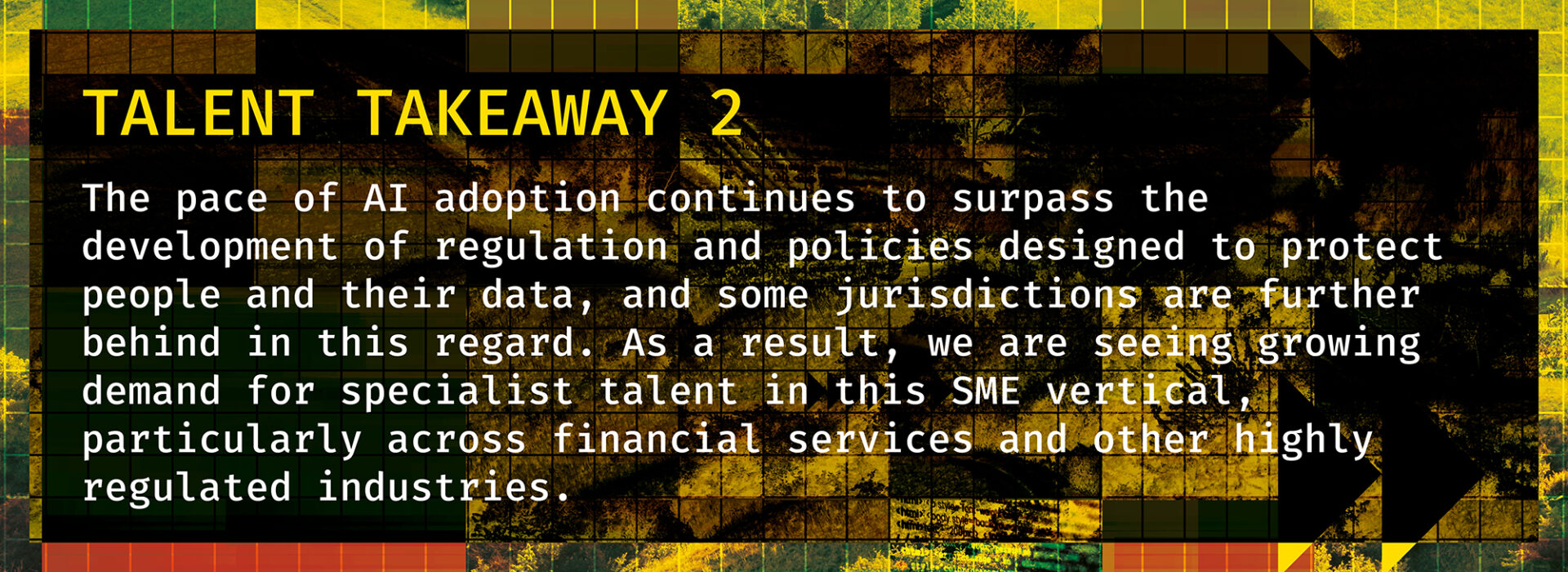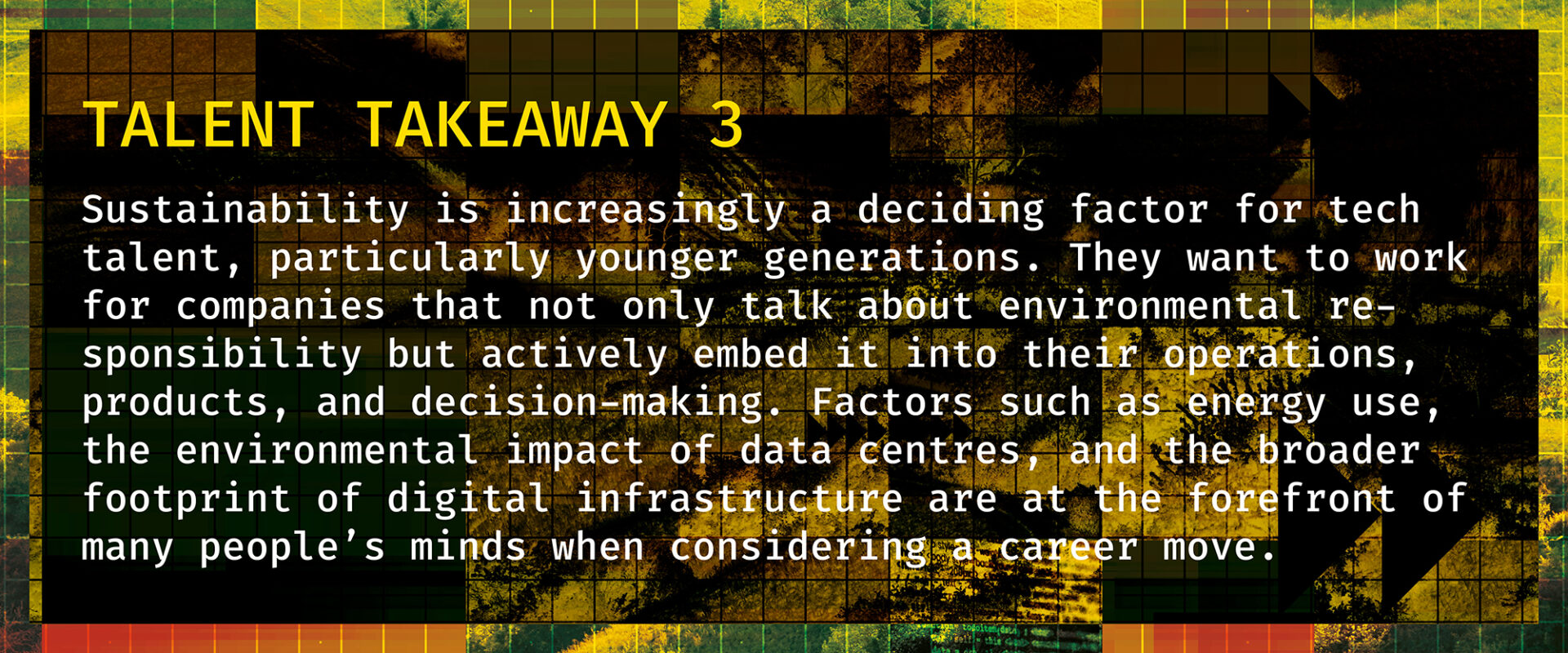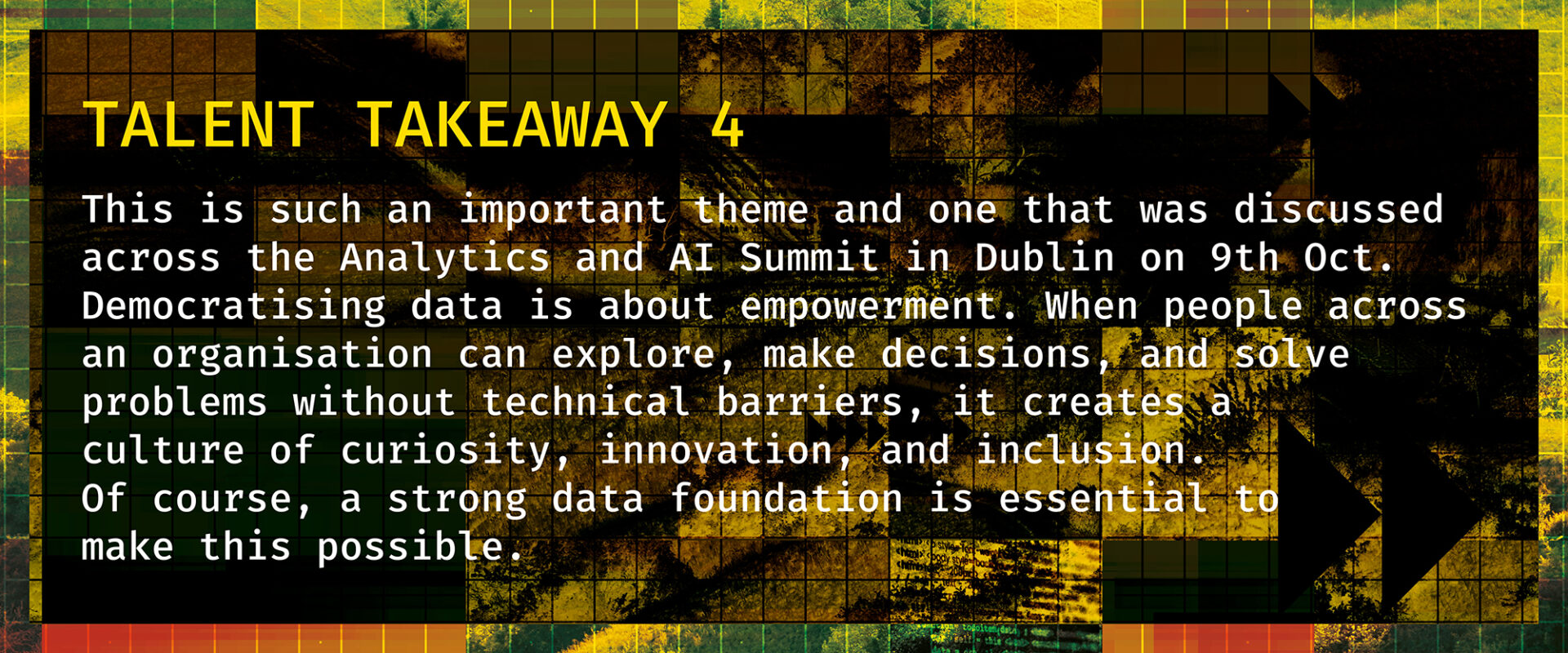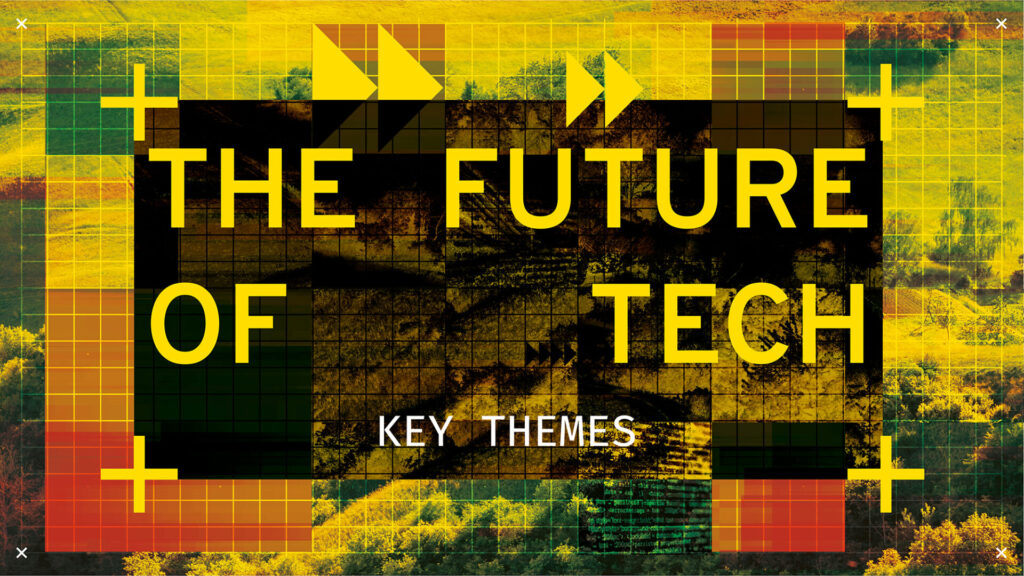What is the Future of Tech?
This question sparked our curiosity to explore the trends, challenges, and opportunities that are redefining the tech industry and, indeed, our lives.
Over the past few months, we have had fascinating, unfiltered conversations with early-career tech professionals, gathering their thoughts & ideas that will shape the next generation of tech. Here are the key themes that emerged from these conversations…
1. Junior Developers are being replaced by AI
With AI becoming increasingly adept in writing code, many of our Future of Tech professionals noticed a change in tech teams’ hiring strategies. Jordan Bent commented that “with a simple click of a button, platforms like Azure can create a whole server or app, something that used to be someone’s entire job.”
While adaptability, curiosity, and continuous learning are important skills in today’s technology talent, tech teams should focus on learning how to leverage these tools to add value, rather than just executing tasks – a point highlighted by David. Furthermore, the benefit of collaboration should not be overlooked. As David noted, “If the team consists only of senior developers, the best outcomes won’t be achieved; a mix of junior and senior developers is needed to leverage the best of both.”

2. Data Privacy & Regulation
Our Future of Tech professionals all called for more stringent governance and regulation, particularly when it comes to data privacy. The general consensus was that Big Tech needs to be more transparent and that data policies should be well thought through and collaborative to avoid data being weaponised.
Jack noted that “AI is likely being used in many areas without the teams managing risk in those areas being aware of it, such as using non-enterprise-protected LLMs or using facial recognition software.” Jordan Ligos highlighted that “as tech gets more powerful, it becomes more important to have policies in place to protect people.”

3. Sustainability
There is a definite tension between the resource demands of technology and the critical role it can play in helping to combat our climate crisis. While a robust sustainability agenda is front-of-mind for our Future of Tech professionals, Jordan Ligos noted that “for people in leadership or working in tech now, I’m not sure sustainability initiatives are front and centre.”
David’s experience working on climate-focused projects, using tech to distil data into actionable insights, showed him that tech can bridge the gap between business decisions and climate responsibility. However, Jordan’s slightly chilling question, “We are at a decision point. Do we value profit, people, or the planet?” raises the concern that sustainability priorities are not high enough on leaders’ priorities.

4. Accessibility & Democratisation of Data
Our Future of Tech professionals shared a strong belief that technology’s true potential lies in making data and digital tools accessible to everyone, not just those with specialist skills or the latest tech resources.
Jack emphasised that “success is when people can go from a loosely defined problem to a clear, strategic decision, and they don’t need to involve data teams in every step.”
David’s research also underlined the importance of equity in access: “In my Master’s, I’m examining how to enable children from disadvantaged backgrounds to have the same opportunities as those from more prosperous socio-economic contexts. In a nutshell, I’m asking how we democratise access to technology.”

5. Missing Voices in the Tech Conversation
While innovation continues at pace, our Future of Tech contributors warned that the conversation shaping that innovation remains far from inclusive.
Jordan Bent observed that “it’s not just that those voices are missing; they are often silenced. The loudest voice in the room is usually the one who makes the most money, talks the most and often, that’s a man.”
Vanessa highlighted the global imbalance: “We need to make sure all voices are heard — not just people from Silicon Valley, but those from underrepresented countries and low-income communities.” Jordan Ligos added that, while progress is being made, there’s still a long way to go: “It’s great to see more women in tech, but we need more, especially women of colour and other minorities. Right now, money drives the conversation, and that doesn’t benefit everyone. Ideally, social good should be driving the tech conversation.”
 You can find all of our Future of Tech conversations here>>>>
You can find all of our Future of Tech conversations here>>>>


 Jump Back
Jump Back

